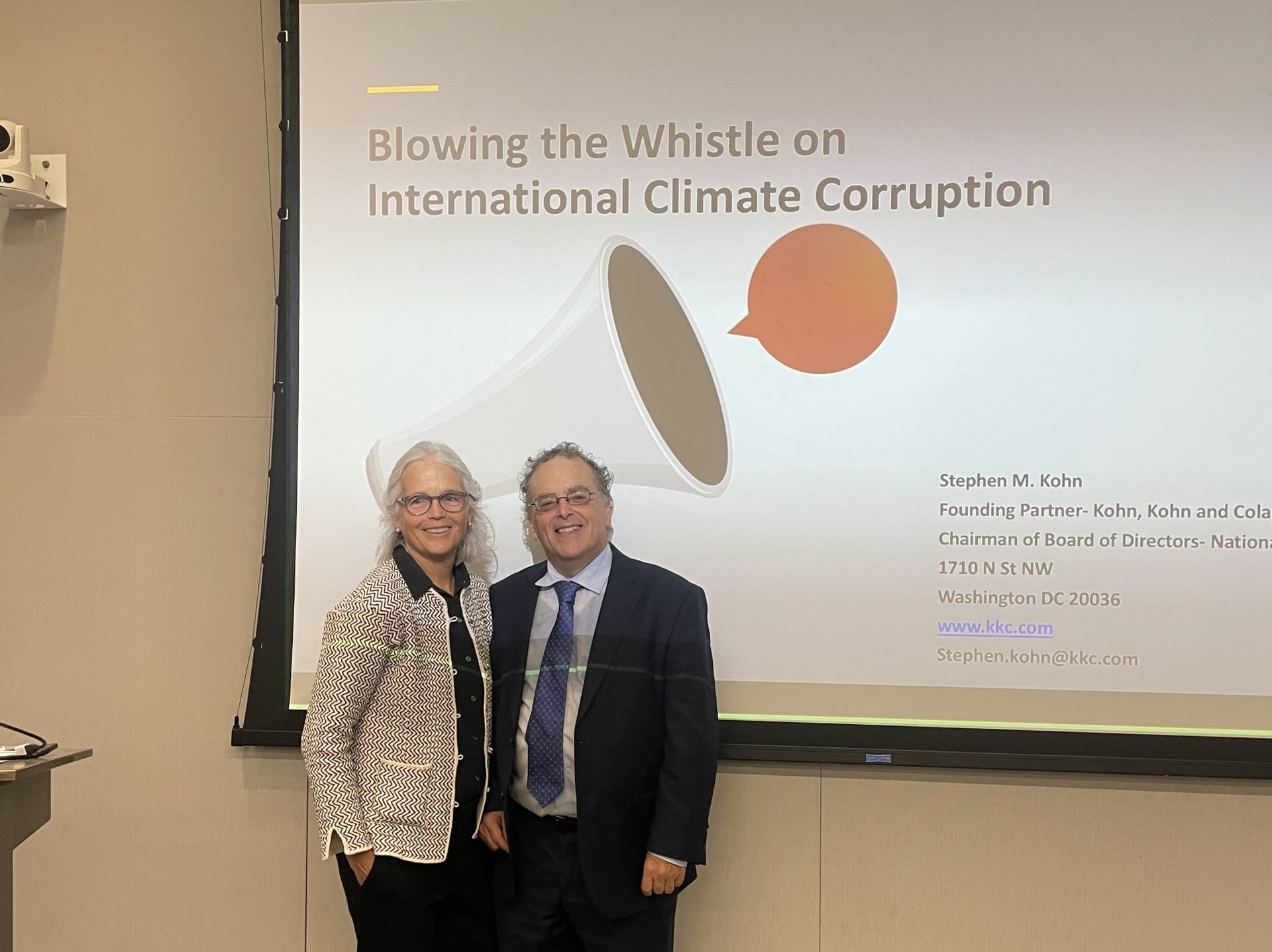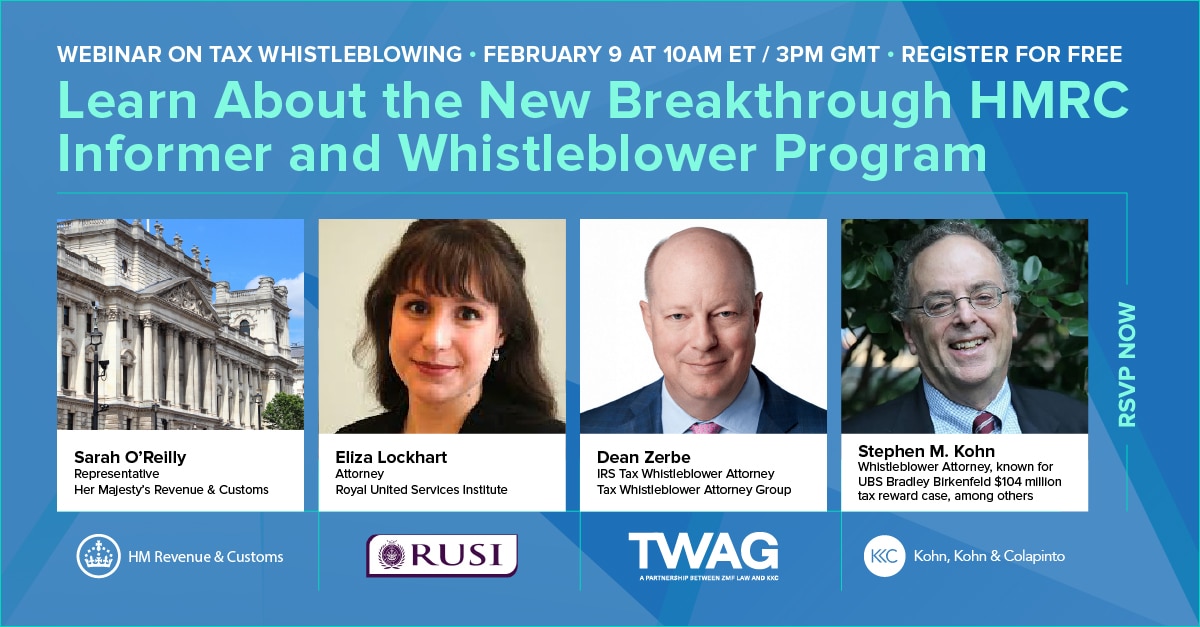Georgetown Talk Focuses on Whistleblowing and International Climate Corruption

On November 10, Kohn, Kohn & Colapinto (KKC) founding partner Stephen M. Kohn participated in Georgetown University’s Earth Commons ECo Talks series. During his talk, “Blowing the Whistle on International Climate Corruption,” Kohn discussed the significance of anti-corruption whistleblowing in the context of tackling environmental damage.
Kohn, who is also the co-founder and Chairman of the Board for the National Whistleblower Center (NWC), has spent almost 40 years handling environmental and corruption cases. The event at Georgetown University was one of many organized by KKC and NWC to discuss fighting climate corruption through whistleblowing.
Kohn’s presentation delved into U.S. whistleblower reward laws and government programs, explaining the importance of supporting whistleblowers who expose climate corruption. Kohn also highlighted that environmental corruption needs to be viewed through a new lens by considering the economic factors.
Kohn stated: “The modern whistleblower laws look at the financial sides of corruption which is ultimately one of the best ways to fight corruption because environmental crimes are driven by profits.”
Kohn emphasized the key U.S. whistleblower laws that can be used to fight climate corruption, including the Dodd-Frank Act, the Foreign Corrupt Practice Act, the Anti-Money Laundering Act, and the False Claims Act. These laws allow whistleblowers worldwide to report to U.S. law enforcement authorities anonymously. Additionally, under these laws, whistleblowers can receive a monetary award if the information they provide leads to a sanction of over $1 million.
Moreover, Kohn also discussed Environmental, Social, and Corporate Governance (ESG) violations, such as greenwashing. Many companies make false claims of being environmentally friendly in an attempt to deceive investors. Kohn emphasized the importance of holding companies accountable for their claims to investors about climate risks and sustainability. He pointed out that the Securities and Exchange Commission (SEC) has a Climate and ESG Task Force responsible for identifying potential violations. Kohn stated, “Who would have ever imagined that the SEC would probably be one of the most powerful enforcement agencies for the environment ever, the SEC has tools to end environmental corruption.”
Kohn also highlighted the effectiveness of modern whistleblower laws that have a transnational reach. These laws offer full coverage to whistleblowers, regardless of their nationality and the location of the violation. Kohn emphasized, “The laws are designed to combat international climate corruption and offer whistleblowers the possibility of receiving large awards while maintaining confidentiality and anonymity.”
Hence, whistleblowers have the possibility of successfully blowing the whistle on international climate crimes and corruption while maintaining confidentiality and anonymity and receiving a large award.
Latest News & Insights
January 27, 2026





